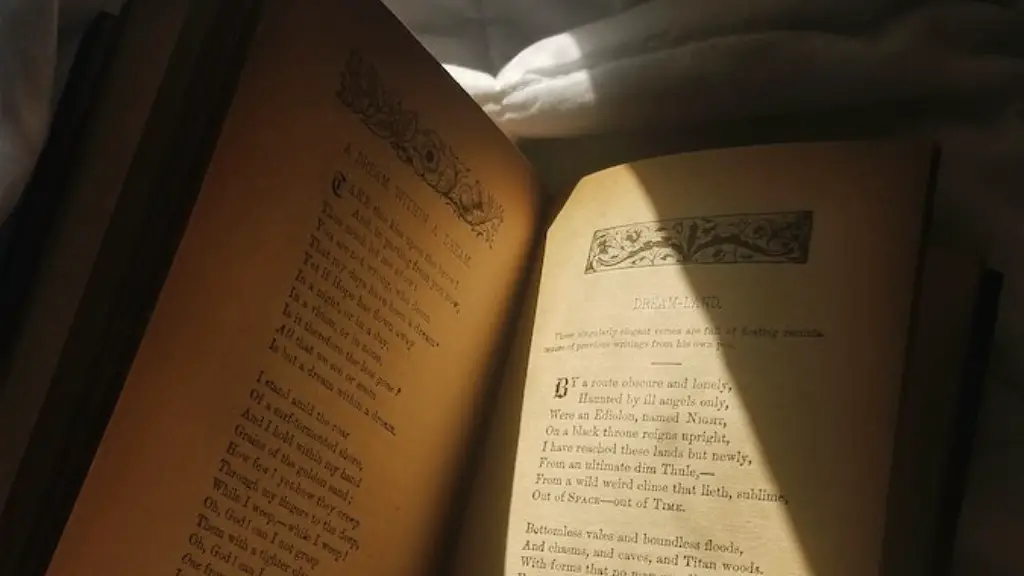The French Revolution was a major event in world history that had a profound impact on thinker and poet William Wordsworth. The Revolution toppled the established order of things in France, resulting in a period of great political and social upheaval. The ideas of liberty, equality, and fraternity that emerged from the Revolution inspired Wordsworth and others to call for similar changes in their own societies. In many ways, the French Revolution shaped Wordsworth’s view of the world and his own place in it.
The French Revolution was a time of political and social upheaval in France that had a profound impact on people all over the world, including the English poet William Wordsworth. The Revolution began in 1789 with the Storming of the Bastille, a symbol of the power of the monarchy, and ended in 1799 with the rise of Napoleon Bonaparte. In between, there was the Reign of Terror, when thousands of people were executed by the new government. The effects of the Revolution were felt in England as well, where Wordsworth was living at the time. He was deeply affected by the events in France and the resulting political instability in England. The violence and bloodshed of the Revolution left him with a sense of horror, but also a sense of hope for the future. The idealism of the Revolutionaries inspired him to believe that change was possible, and that ordinary people could make a difference. This experience had a lasting effect on Wordsworth’s poetry, which often reflects on the themes of change, revolution, and the power of the people.
How did William Wordsworth feel about the French Revolution?
Unfortunately, Wordsworth’s hopes for the Revolution were not realized. The republic did not last long, and France soon descended into chaos.
In 1797-98, Wordsworth began writing the short, lyrical poems for which he is best remembered. These poems were inspired by Coleridge and the healing effects of nature and his sister. These poems helped Wordsworth to cope with the difficult times in his life and to express his emotions in a creative and positive way.
What are the themes on French Revolution by William Wordsworth
The French Revolution was a time of great upheaval and change in France. The motto of the Revolution was Liberty, Equality, Brotherhood, and it stood for ideas such as social justice, personal freedoms, and the idea that there were inalienable human rights, which defied class, wealth or gender. Wordsworth supported many of the ideals of the French Revolution and to do so could be dangerous.
The French Revolution was a time of political and social upheaval in France that had a profound impact on the country’s literature. The political liberalism of the Revolution inspired the liberation, individuality and rejection of prescribed rules in the Romantic Literature. The Romantic poets were inspired by the ideals of equality, fraternity and liberty. They sought to promote these ideals through their writing. The French Revolution was a key moment in the development of Romanticism, and its influence can be seen in the works of many of the movement’s key figures.
Which writer most influenced the French Revolution?
Voltaire was a French philosopher and writer who had a great influence on the direction of European thought in the 18th century. He was an outspoken advocate of freedom of religion and freedom of speech, and he was a fierce critic of the Catholic Church and the ancien régime. Although he died in 1778, he is often credited as being an architect of the Revolution of 1789.
The French Revolution was a turning point for the European Romantic poets. The liberal thinking that came out of the Revolution allowed the poets to express themselves more freely. The Romantic poets were able to explore new ideas and subjects that were previously off-limits. This period of exploration led to some of the most important works of poetry in the Romantic canon.
Which movement in poetry did Wordsworth inspire?
William Wordsworth is one of the most famous poets of all time. He is considered the founder of English Romanticism and his poems are some of the most beautiful and well-loved in all of literature. While most people know him as a great poet, he was also an extremely accomplished man, who traveled widely and had a very active social life. He was born on April 7, 1770, in Cockermouth, United Kingdom, and died on April 23, 1850, in Westminster, United Kingdom.
Wordsworth was a key figure in the Romantic movement, and his work focused on nature, the sublime, and imagination. These were all important themes in Romanticism. His work showed how nature could help calm people and take them away from society. This was especially important during times of hardship, when people needed a way to escape from the stresses of everyday life.
What inspired Wordsworth to write daffodils
“I Wandered Lonely as a Cloud” is one of William Wordsworth’s most celebrated poems. Written in 1802, the poem was inspired by the beauty of a field of daffodils the poet observed during a walk with his sister. The poem is noteworthy for its depiction of the simple joys of nature and its elegiac tone.
Initially, Burke found himself at odds with the public mood in his home country – his political affiliations and emotional loyalty were still very much with France. Indeed, in his Letter to the Bishop of Llandaff, written in early 1793, he is as defiant in his defence of the Revolution as ever. However, as the Reign of Terror progressed and the atrocities committed in the name of the Revolution became increasingly apparent, Burke began to speak out against it. In his 1795 work, A Letter from Mr. Edmund Burke to a Noble Lord, he condemned the Revolution in no uncertain terms, and his change of heart is seen as a major factor in the eventual downfall of the French Revolution.
What change in the course of the French Revolution caused a conflict in Wordsworth?
The French Revolution was a time of great turmoil and change for the country of France. One of the major changes that took place was the fact that the French became an oppressive force, conquering other regions. This change in the course of the French Revolution caused a conflict within Wordsworth. The poet felt that the French were wasting their powers by “getting and spending” instead of using their abilities to help others.
The French Revolution was a time of great change and turmoil in France. One of the most lasting legacy of the Revolution is the national motto, “Liberté, Egalité, Fraternité”. This motto encapsulates the ideals of the Revolution: liberty, equality, and fraternity. Although these ideals were often called into question, they eventually established themselves as core values of the Third Republic. Today, the motto continues to serve as a reminder of the importance of these principles in French society.
Why was the French Revolution significant to the Romantic writers
The French Revolution was a turning point for the arts and for morality. For artists and writers, it was a time when they could explore new ideas and concepts that had been previously unthinkable. The Revolution also allowed them to touch on subjects that were previously taboo, such as love and sex. This new morality resembled the quiet peaceful nature of man, and it was a welcome change from the previous regime.
The French Revolution was a turning point in history which saw the rise of Romanticism and the Counter-Enlightenment. These two movements were in reaction to the aristocratic social and political norms of the time as well as the scientific rationalization of nature. Romanticism championed emotion and intuition over reason, while the Counter-Enlightenment embraced reason and scepticism. Both movements had a profound impact on the arts, literature, politics, and thought.
What is the relationship of the French Revolution with English romanticism?
The French Revolution was a clear influence on British romantic poets and writers during the time of revolution and post-revolution. While it did not discourage British romantic poets’ faith in revolution, it did sublimate ideology in the forms of forgery and romanticism.
The French Revolution was a watershed moment in European history, and it was largely due to the influence of a group of thinkers known as the philosophes. These men – Voltaire, Rousseau, Montesquieu, and Diderot – were all philosopher-writers who advocated for Enlightenment values like reason, progress, and individual rights. In doing so, they exposed the inefficiencies of the monarchy and the government, and aroused the people to challenge authority. The result was one of the most significant political upheavals in history.
Warp Up
The French Revolution was a significant event in European history that had a substantial impact on the life and work of William Wordsworth. The Revolution began in 1789 with the storming of the Bastille, a symbol of the absolute monarchy that had ruled France for centuries. Over the next few years, the Revolution would see the fall of the monarchy, the rise of the Republic, and ultimately the Reign of Terror. These events had a profound effect on Wordsworth, who was living in England at the time. He was inspired by the ideals of the Revolution, which called for freedom, equality, and fraternity. He saw in the Revolution a hope for a better future for all people. This hope is evident in his poetry, which often celebrates the common man and criticizes the abuses of power.
The historical French Revolution had a great influence on William Wordsworth. The political upheaval and violence of the Revolution inspired Wordsworth to write some of his most famous poems, such as “The Prelude” and “The Idiot Boy”. The events of the Revolution also made Wordsworth more sympathetic to the plight of the poor and oppressed, and he became a vocal critic of the British government’s policies towards the poor.





